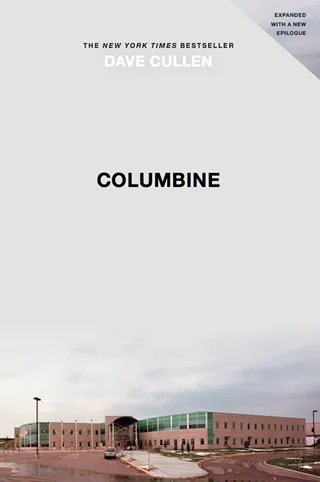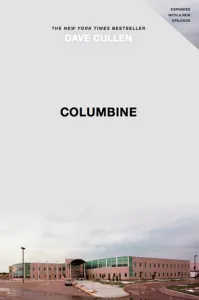
Sometimes, Books Make Me Feel Dumb (and That’s a Good Thing)

Besides 9/11, Columbine was the the most meaningful touchstone of my adolescence (maybe even more so, since high school-age shooters felt a whole lot nearer my small-town orbit than airplane-hijacking terrorists). The whole country grieved together, and then for years heard the same warnings about Marilyn Manson, violent video games, the Trench Coat Mafia, and the high cost of bullying. We internalized those warnings and created (with the assistance of the media) a stock image of what a school shooter would look like, an image that many of us can probably still summon without much effort.
Before I read Dave Cullen’s Columbine, I would have sworn that I “understood” Columbine. If someone who wasn’t born at the time of the attack had asked me about it, I would’ve probably led with the bullying, expressed my doubts about the acute effects of music tastes and video games (conveniently so, since I too played violent video games), and talked a lot about the way that Eric Harris and Dylan Klebold changed school security and procedures in places that had previously thought themselves immune to the horrors of targeted violence.
But Cullen’s excellent journalistic account of the shooting and the events that followed totally upended my “understanding” of Columbine, and made it clear that anyone with knowledge of the facts would’ve shaken their heads at my superficial grasp of the matter.
Cullen’s book was widely praised as revelatory when it was published in 2009, so I don’t know why I was so consistently surprised to find that the reality of the shooting and its aftermath was far different from my perception. Some of the stuff I thought I knew is true in only the most shallow sense (as in, I had the facts right but my conclusions were wildly erroneous), and much of it is entirely false.
I’m used to being educated by history books and even by non-fiction that covers a contemporary subject about which I know I’m painfully ignorant. So when I read Battle Cry of Freedom (about the Civil War), Alexander Hamilton, or Between the World and Me, I was wholly comfortable leaving my assumptions at the door. But being so wrong about something that I felt such a strong connection to had a strange effect on me. On the one hand, I devoured the book in just a few sittings and was weirdly pleased every time I discovered how wrong I’d been about something fundamental to the understanding of the shooting, the media’s coverage of it, and the assumptions I’d been holding onto for nearly two decades. On the other hand, I felt like a dope.
I mean, I probably should have seen it coming. At 13 years old, I definitely wasn’t equipped to dutifully sift through the coverage of such an enormously complex event and emerge with a responsible understanding of it. Especially when a number of facts remained murky for years after the event. Still, it’s jarring to be shown your own ignorance that thoroughly.
Soon enough, however, I shook off the embarrassment of being schooled by an exhaustively thorough piece of journalism and immediately replaced it with an appreciation of the value of a book like Columbine. For years, when discussing the shooting with students who were too young to remember it, I adopted the posture of someone who understood the events in a way they never could, because I was there, man. If you’ve ever had a conversation with somebody who remembers the JFK assassination or even somebody who’s vacationed in a country where you’ve never been, you might recognize the tone.
Cullen’s book showed me that we should be suspicious of that kind of easy certainty and that learning how little we actually know is one of the great gifts books have to offer. It probably sounds trite to even say something so obvious, but I haven’t always had the most gracious attitude having my ignorance pointed out, so having a book there to do it sans judgment is probably a best-case scenario for me.
Once again, books prove that they’re good at pretty much everything.
Show-offs.












